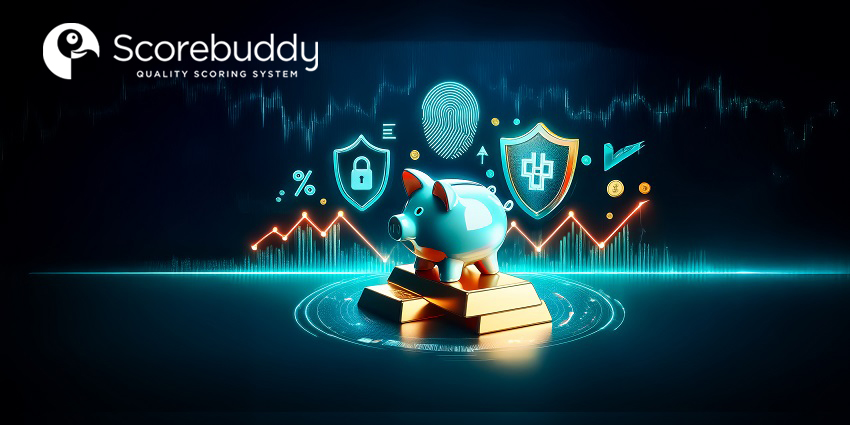Whether you like it or not, there’s no denying that AI has drastically altered the customer service and experience space.
While it’s hard to find many areas that have not been impacted by the tech over the past few years, quality management (QM) and quality assurance (QA) can make a pretty strong case for being two of the areas most affected.
For Scorebuddy, a leading provider of QM and QA solutions, AI has been at the heart of some of its latest innovations, including the company’s generative AI (GenAI) Auto Scoring feature.
The solution allows companies to assess up to 100 percent of conversations automatically, which equates to 50 times more interactions than the previous manual process without extra staff or resources.
AI-powered automation has also drastically reduced evaluation time from up to five minutes per interaction to just two seconds, making the process over 100 times faster.
It is the success of tools like these that helped the company recently secure a significant €5 million investment.
In an exclusive interview with CX Today, Scorebuddy CEO and Founder Derek Corcoran described the strategic funding as a turning point for the company, which will further solidify its position as a leader in contact center optimization.
“For years, we were essentially bootstrapped, which is nice, but limiting. You can only grow so fast organically,” Corcoran explained.
“With this investment, we can execute our scaling plan – building out our AI team, expanding development, and improving customer support.”
Having considered several potential investors, Scorebuddy ultimately partnered with Foresight, a London-based private equity firm with a portfolio of other companies in the customer service and experience space.
In outlining why the company decided to go with Foresight, Corcoran explained that the firm had “understood our market and our vision.”
The CEO also had advice for other organizations in a similar situation to Scorebuddy:
“Focus on telling your story effectively – about 30 percent should be looking back at how you got here, and the rest should be about where you’re going.
“Investors see many pitches, so you need a compelling, data-backed narrative. Confidence and clarity are key.”
While the investment is clearly a testament to Scorebuddy’s growth and success, it also highlights the wider demand and potential for AI-driven solutions in the space.
Scorebuddy’s AI-Driven Approach
“AI is driving major changes.”
What took this writer several paragraphs to convey, the Scorebuddy CEO summed up in five words.
More specifically, Corcoran provided examples of where the tech is delivering these changes across the contact center.
He explained how the use of GenAI bots to handle self-service interactions impacts the front end of customer service, while AI-powered agent assist tools also enhance workflow efficiency.
For Corcoran, staying abreast of these changes is essential, as Scorebuddy’s solutions need to adapt accordingly.
One such area is quality evaluation. The Scorebuddy man explains how companies need tools to monitor bot performance and sentiment, even for AI interactions.
“For example, a bot might achieve high deflection rates but deliver poor customer experiences.
“Our platform helps businesses maintain human oversight, flagging problematic interactions for review.”
The importance of keeping the human in the loop is something that Corcoran clearly feels strongly about.
He argues that despite the increased automation and use of AI in the sector, “human evaluation isn’t going away.”
“AI-powered quality scoring can cover 100% of interactions, but human oversight ensures accuracy.”
Corcoran champions this hybrid approach of AI and humans working in tandem, pointing to tools like scoring assistance, conversation summarization, and performance recommendation engines as examples.
What’s Next for Scorebuddy?
As the conversation drifts towards what the investment and potential of AI-powered technology will mean for Scorebuddy’s future, Corcoran reiterates the role AI will play in advancing QA scoring tools.
He explains how features like annotation, summarization, and automated coaching recommendations will further support evaluators and supervisors. He also highlights AI’s ability to analyze historical performance and identify coaching opportunities, describing it as “transformative.”
“It can detect patterns over months of QA scores, helping supervisors provide targeted training.”
Moreover, Corcoran discusses how Scorebuddy plans to increasingly target more enterprise clients.
While many vendors offer pre-built AI scoring, the CEO claims that enterprises require greater configurability and flexibility – a remit that Scorebuddy can fulfill thanks to its customizable AI scoring models.
It is clear that having secured the investment, Scorebuddy has no intention of resting on its laurels.
With the capabilities of AI seemingly growing every day, it will be fascinating to see how the tech continues to help shape the future of QM and QA.
To find out more about Scorebuddy and its GenAI Auto Scoring feature, check out this article and our recent video interview with CEO Derek Corcoran.
You can also visit Scorebuddy’s website for a full breakdown of its solutions and services.







